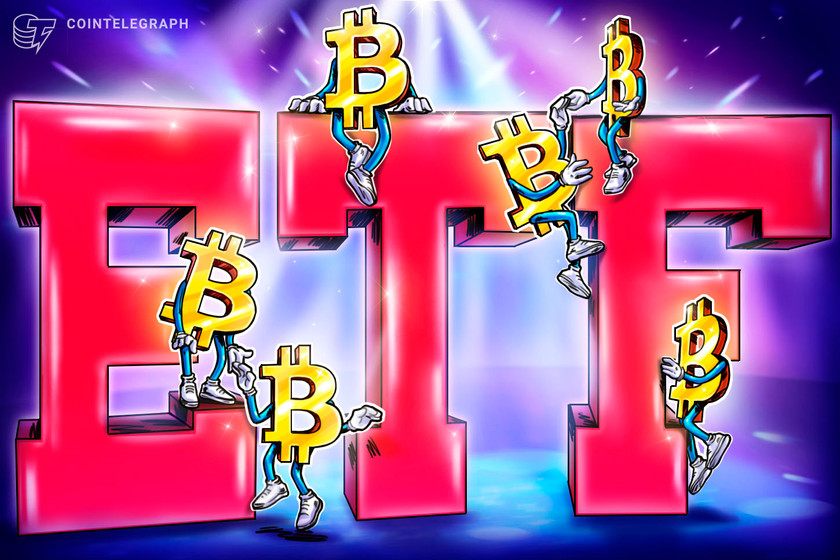KuCoin crypto exchange debuts USDT-dominated NFT ETF


KuCoin’s new investment product aims to increase the liquidity of and access to leading nonfungible token collections such as BAYC.
Seychelles-headquartered cryptocurrency exchange KuCoin has launched an exchange-traded fund (ETF) tied to major nonfungible token (NFT) assets like Bored Ape Yacht Club (BAYC).
KuCoin’s NFT ETF Trading Zone went live on Friday, the firm announced. The new investment product is launched in collaboration with NFT infrastructure provider Fracton Protocol.
The KuCoin NFT ETF is a Tether (USDT)-dominated product that marks particular underlying NFT assets like Bored Ape Yacht Club. BAYC is one of five NFT ETFs that KuCoin is launching. Trading under the symbol hiBAYC, the asset is an ERC-20 token representing 1/1,000,000 ownership of the target BAYC in the BAYC meta-swap of Fracton Protocol.
The ETF aims to increase liquidity as it enables exposure to NFTs via the USDT stablecoin instead of Ether (ETH). It also eliminates the risks and concerns around managing NFT infrastructure elements like wallets, smart contracts and marketplaces like OpenSea.
In addition to hiBAYC, the investment covers CryptoPunks (hiPUNKS), Koda NFTs (hiKODA), hiSAND33 and hiENS4. Starting with hiBAYC on Friday, the investment product is scheduled to list hiPUNKS on Aug. 4. Listings for hiKODA, hiSAND33 and hiENS4 will be announced at a later date, the exchange said.
The ETF marks an important milestone in KuCoin’s efforts to accelerate the establishment of the NFT market by lowering the investment threshold of leading digital collectibles.
The exchange has been focused on developing the NFT sector, launching the interactive NFT launch platform Wonderland in April 2022. KuCoin also rolled out Windvane, another NFT marketplace providing an NFT launchpad, mint, trade, management and other services.
“KuCoin will continue to offer user-friendly products for investors, allowing them to easily participate in NFT investments,” KuCoin CEO Johnny Lyu said. According to Lyu, KuCoin is the first centralized crypto exchange to support NFT ETFs that allow users to invest and trade top NFTs directly with USDT.
Related: US federal agency issues legal advisory on NFT investments
KuCoin is not the first to explore NFT ETFs, though. In December 2021, registered investment adviser and fintech firm Defiance launched the world’s first NFT-focused ETF on New York Stock Exchange Arca. The ETF tracks an index of companies that are operating or plan to operate in the NFT and Metaverse sectors.

























